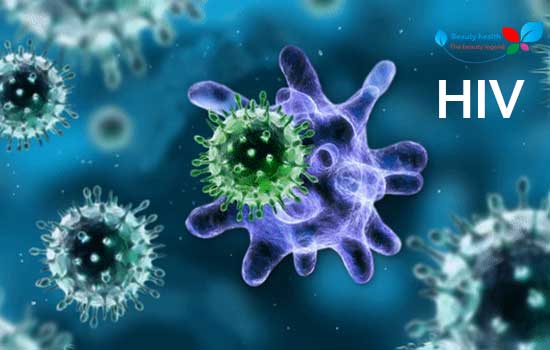Hiv
Hiv
How is HIV transmitted and what are the symptoms of HIV and what is the difference between AIDS and HIV?When AIDS appears with blood
Hiv:
How is HIV transmitted and what are the symptoms of HIV and what is the difference between AIDS and HIV?When AIDS appears with blood analysis and what are the symptoms of AIDS we will know in this article.
What is HIV:
Immunodeficiency strikes prevent your body from fighting infections and diseases, this type of disorder makes it easy for you to catch viruses and bacterial infections.
Immunodeficiency disorders are either congenital or acquired:
- Congenital or underlying disorder is a disorder born in it (born with a human being).
- Either acquired or secondary disorders are what you get later” in life.
- Acquired disorders are also more common than congenital disorders.
What is the immune system of humans?
- Spleen.
- Tonsils.
- Bone marrow.
- Lymph nodes.
- B-cells called antigens and B cells release bodies” antibodies to the disease your body detects.
- T-cells also destroy alien or abnormal T cells.
THE BODY’S ABILITY TO DEFEND ITSELF AGAINST THESE ANTIGENS IS IMPAIRED.
What are the different types of immunodeficiency disorders?
- Low blood gammaglobin ratio associated with the X chromosome.
- Common variable immunodeficiency (cvid).
- Severe joint immunodeficiency (scid) known as “boy in the bubble” disease or multi-lymphocytes.
- Secondary immunodeficiency disorders occur when your body attacks an external source such as a toxic chemical or infection.
- Severe burns.
- Exposure to chemotherapy.
- Radiation.
- Diabetes.
- Malnutrition.
- AIDS.
- Cancers of the immune system such as leukemia.
- Complex immune diseases, such as viral hepatitis.
- Multiple myeloma (cancer of plasma cells, which produces antibodies).
People at risk of hiv/AIDS:
- Those with a family history (genetic diseases) of primary immunodeficiency disorders have a higher than usual risk of developing primary disorders.
- Anything that weakens the immune system can also lead to secondary immunodeficiency disorder, for example:
- Exposure to HIV-infected body fluids (player or sexual intercourse) can be.
- Splenectomy may also be one of the main causes of HIV infection.
- Spleen removal may be necessary due to conditions such as cirrhosis or sickle cell anemia
- As aging can weaken your immune system as you age, some organs that produce white blood cells shrink and produce
- Fewer.
- Proteins are also important for your immunity when insufficient protein in your diet can weaken your immune system.
- Your body also produces “sleep proteins that help your body fight infections, which is why lack of sleep reduces your immune defenses.
- Cancer and chemotherapy drugs can also reduce your immunity.
Diseases associated with primary immunodeficiency:
- Ataxia and capillaries expand.
- Chidiac Higashi syndrome.
- Joint immunodeficiency disease.
- Complete the shortcomings.
- De George’s syndrome.
- Hypoglycemia.
- Function syndrome.
- Defects of leukocyte adhesion.
- Heipogamaglobin blood.
- Proton disease.
- Wescott’s dirich syndrome.
Signs of HIV/AIDS
- Inflammation of the soles of the eye.
- Sinusitis.
- Colds.
- Diarrhea.
- Pneumonia.
- Yeast infection.
If these problems do not respond to treatment or do not improve completely” over time, your doctor may examine you for an IMMUNE disorder.
Diagnosis of immunodeficiency disorders:
If your doctor thinks you may have ANIs, they’ll want to:
- Ask about your medical history.
- A physical examination.
- Determine the number of white blood cells.
- Find out how many T cells you have.
- Measuring immunoglobulin levels.
Vaccines can also test your immune system’s response to so-called antibody testing, where you will be given a vaccine and then you will test your blood for its response to a vaccine in a few days or weeks, but if you don’t have an immunodeficiency disorder, your immune system will produce antibodies to fight the organisms in the vaccine, and you may have a disorder if the blood test does not show antibodies.
